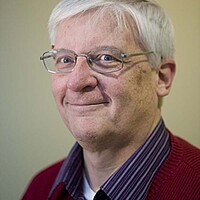Water crisis runs much deeper than digging a well
Loading...
It's easy to tell a powerful and heart-rending story about the lack of clean water that afflicts millions of people.
Paint a picture: A young girl must walk miles down a dusty road to collect water from a contaminated well or stream and then haul it home on her back. The journey takes so long that she can't take time to attend school. The water itself is so polluted that it causes illnesses in her family, perhaps keeping other family members from working or attending school.
It's a tragic picture that rightfully elicits funds from well-meaning donors. But it's only part of the story.
For decades aid organizations have been drilling wells and installing taps and hand pumps all over the developing world. But while some progress in improving access to clean water has been achieved, it hasn't been as dramatic as the number of these projects would suggest.
Why? Because a large percentage of wells and hand pumps fall into disrepair and are abandoned only a few years after they are installed. Pipes break, spare parts are unavailable, or people with the technical expertise to make repairs are nowhere to be found.
"People are walking past broken taps and going back to polluted water sources," says Ned Breslin, CEO of the nonprofit group Water for People. Up to 60 percent of water projects fail within 18 months to two years, Water for People says. "[The problem goes] way beyond just banging in infrastructure."
What's needed is the harder, less glamorous work of monitoring and maintaining water systems, Mr. Breslin says. That's why his organization pledges to monitor all of its water projects for 10 years after installation to make sure they are still in operation. The idea is that a project built to last – and properly maintained – costs less in the long run.
Breslin was speaking just prior to World Water Day, founded by the United Nations in 1993. This year the 20th World Water Day is being marked tomorrow, March 22.
Despite a concerted effort by governments and nongovernment groups, the problems of water scarcity and quality remain enormous. Some 783 million people don't have access to safe drinking water, 2.5 billion don't have adequate sanitation facilities, and nearly 6,000 people – mostly children – die from water-based illnesses each year, Water for People estimates.
Breslin's nonprofit, which is funded in part by donations from North America's water companies, applies another key tenet: Local people should be viewed as partners – not victims.
"Treating people as active agents in the solution, as opposed to just saying, you know, they're really poor and they can't afford it, is a very different approach," says Breslin, who received the Skoll Award for Social Entrepreneurship for his work with Water For People in 2011. "And, frankly, communities around the world respond to that. They respond to … challenging the story that they are poor and helpless."
Water for People now is looking to work with multinational corporations that share its concerns about the availability of clean water.
"We're partners with Coca-Cola," he says. "Coca-Cola has some of the greatest water-resources scientists around: How do we unleash them as part of the solution to sustaining water resources over time?"
More and more, climate change is exacerbating the water problem, Breslin says. "We see all around the world water resources under great threat. We have great concerns. We're seeing massive rainfall pattern changes.
"To me climate change is an absolute threat, and every corporation around the world that has some footprint in water is worried about it, and so are we," he says.
Water for People doesn't advocate for any one solution to the world's water crisis.
"We can be creative and begin to address this problem with everything from aquifer recharging to better storage of water and a whole range of things … if we acknowledge it's a challenge," Breslin says. "We believe that there's a wide range of technical solutions that exist. There are new things constantly coming on line. The challenge is to get the best solutions for each particular locale."








